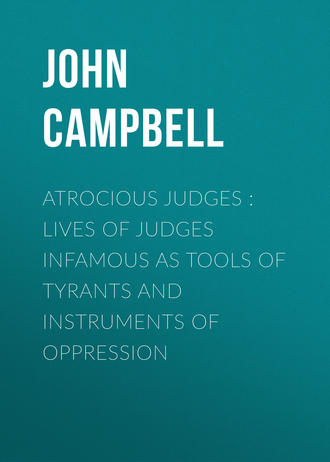Atrocious Judges : Lives of Judges Infamous as Tools of Tyrants and Instruments of Oppression
 полная версия
полная версияAtrocious Judges : Lives of Judges Infamous as Tools of Tyrants and Instruments of Oppression
Язык: Английский
Год издания: 2017
Добавлена:
Настройки чтения
Размер шрифта
Высота строк
Поля

